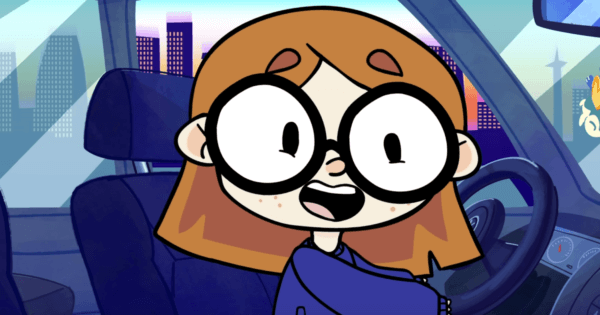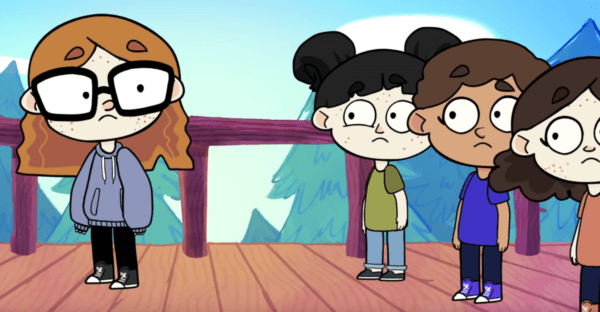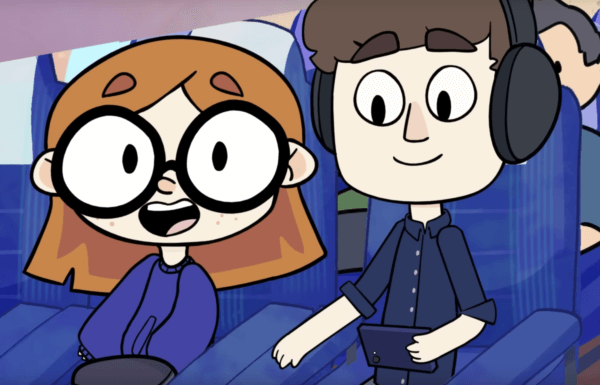Autism Awareness Month: Interview with Ilyssa from Illymation
In our series of interviews for Autism Awareness Month, I have had the privilege to speak with other autistic people who have worked within the animation industry and neurotypical individuals who have written and created short films and television shows featuring characters on the spectrum. For this year, we are joined by two YouTube animators to discuss their careers on the platform, sharing their experiences as autistic content creators, and how their audiences have reacted to their work since both came out on the spectrum. (You can read our interview with Cy from Cypopps here.)
One of the most prominent and recognisable YouTube animators, Ilyssa Levy from Illymation has created and shared emotional, funny, and hard-hitting stories from her personal life that have attracted millions of viewers. Last year, she shared her first video on autism and her experiences on the spectrum, which not only received over four million views but saw her make a follow-up video on the same subject. Taking the time to join us and answer our questions, Ilyssa shares with us the inspiration behind her videos, how her fans reacted to her coming out as being autistic, and how she thinks representation of neurodiversity on YouTube has changed throughout her career.
You’ve talked a lot about the many chapters in your life on your YouTube channel. Why did you decide to share your autistic stories?
Growing up, I felt like there was something wrong with me. There were things I struggled with that my peers didn’t. And while “nerdiness” was a label I came to accept for my intense and undying interests, it didn’t quite explain things like my sensitivity to certain fabrics and loud noises. Finding out I was on the spectrum helped me begin to unpack the anxiety and shame I was carrying into every social interaction since grade school. Now that I had this enormous revelation, it made me wonder, how many people in my YouTube audience feel this way too? How many were diagnosed as children, and how many didn’t? Diagnoses aside, there would likely be stories that revealed shared experiences and words of encouragement that I could provide to viewers.
When I first set out to make videos years ago, my intended audience was merely a past version of myself I wished to comfort; but as I’ve learned with every upload discussing a vulnerable topic, there are many people seeking that same comfort, and I’m always looking out for more opportunities in my storytelling to provide that.
Since you came out last year as being autistic in one of your videos, how has it impacted your relationship with your audience and the artists you collaborate with?
Thankfully, my audience welcomed me with open arms. Many kind comments from viewers shared they were on the spectrum as well, and they felt less alone knowing a stranger like me, and thousands of others in the comment section, struggle with similar things. Without outing anyone, some content creators I met after my video went up disclosed to me they were also autistic. I’ve been very lucky to have made some new friends.
In your Dating (when you’re autistic) video, I found your segments on Spoon Theory (a metaphor to describe the amount of energy people have for daily tasks) and Masking (a technique where people copy others to blend in) were well executed and educational, especially as an autistic adult, who personally never heard of them before. What is your process towards your research for your videos and how do you implement them into your animations?
Thank you! Because my videos focus on my lived experiences, I make sure my research includes a good mix of facts (so the audience can be directed elsewhere for more information or support), as well as other personal accounts. I, along with every YouTuber I know, will send their video scripts to friends for feedback. But for videos with deeper topics like this one, I make sure to reach out to others who I know have specific knowledge in the topic and can provide very valuable feedback and suggestions. For Dating (when you’re autistic) it made sense to not just ask my boyfriend to look over the script, but to also play a major role sharing his stories in the video!
Throughout your career on YouTube, how do you personally feel that representation and inclusion of neurodiversity has changed on the platform from when you started to now?
When I think back on the early “style” of YouTube humour, the r-slur was a commonly used insult, and many skits only featured autistic people or traits in a negative light. I think we have come a long way, but there is still plenty of room for improvement. The new way I’ve seen online bullying against autistic people is to spam the comment section with words that sound similar to the r-slur or the word autistic (“I think they’re restarted.“ or “Are they acoustic?”) and I can only imagine how difficult school must be for autistic kids today. It makes me glad there is a growing community, both online and off, for autistic people to find each other and feel less alone!
While I’m sure fans can expect more videos to come this year, would you like to make another one on autism?
I’m not sure! I didn’t anticipate making a second video discussing autism until I was dating a fellow autistic person for the first time and having new revelations. I think only time will tell!
You can watch Ilyssa’s videos on the Illymation YouTube channel and you can also follow her on Instagram and X.




